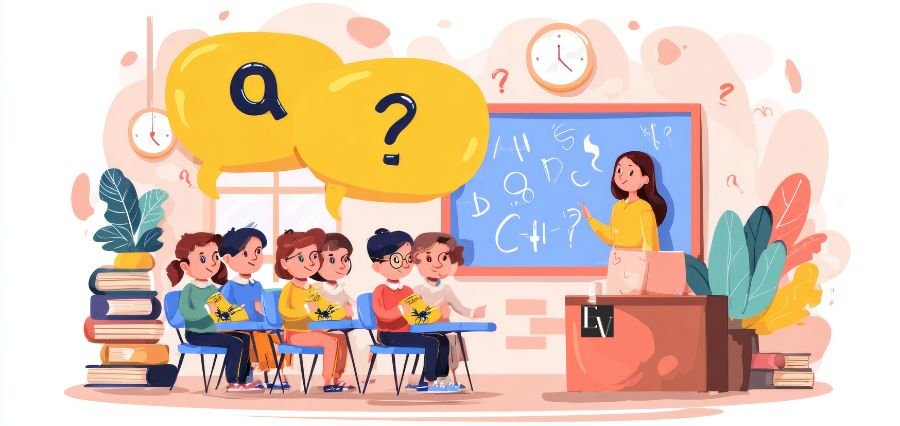General knowledge has always been the fuel for curiosity and conversation. Whether it’s children asking “Why is the sky blue?” or adults debating about history or science, having a strong foundation of trivia and facts helps us connect with the world better. If you are a parent, teacher, or just someone who loves quizzes, then you already know the importance of a good GK Question. These questions are often short, thought-provoking, and mind-opening; they can make learning fun while sharpening memory and comprehension.
In this blog, we’ll explore how GK Question sets can benefit kids, how to frame effective ones, and provide over 50 engaging options covering science, history, sports, and everyday knowledge. We’ll also discuss some ways to make quiz sessions exciting, especially when designed as general knowledge questions for kids.
Why a GK Question is Powerful
A single well-framed GK Question has the ability to spark curiosity in young learners. When children answer correctly, they get a sense of achievement; when they get it wrong, they still learn something new. Unlike standard classroom study, general knowledge enhances awareness across multiple fields. Instead of being confined to just math or literature, kids get a taste of geography, famous personalities, current affairs, fun facts, and even riddles.
Imagine you ask a child: Which planet is known as the Red Planet? The curiosity to know “Mars” immediately introduces them to astronomy. This kind of learning sticks because it is interesting, interactive, and often surprising.
Benefits of Asking Kids GK Questions
Children have flexible, eager minds, and engaging them with GK Question challenges offers lasting advantages:
- Improves focus: Quick answers teach children to listen carefully.
- Sharpens memory: Repeated exposure to facts improves recall ability.
- Encourages curiosity: Kids naturally ask “why” and “how” after hearing an answer.
- Strengthens communication: Sharing facts with friends boosts confidence.
- Builds problem-solving skills: Analytical questions make them think creatively.
When framed as general knowledge questions for kids, these benefits double, since the content is age-appropriate and simplified for understanding.
50+ Engaging GK Question Ideas for Kids
To help you get started, here’s a curated list of fun GK Question sets across various topics. They’re designed to be easy for children but still challenging enough to spark discussion.
Science-Based GK Question List
- Which planet is closest to the sun? – Mercury
- What part of the plant makes food? – Leaves
- Which gas do humans need to breathe? – Oxygen
- What is Earth’s only satellite called? – Moon
- Which animal is known as the “Ship of the Desert”? – Camel
- How many colors are in a rainbow? – Seven
- What do bees produce? – Honey
- Who invented the light bulb? – Thomas Edison
- Which planet is known as the Blue Planet? – Earth
- What type of blood cells fight infections? – White blood cells
History & Geography GK Question Set
- Who was the first President of India? – Dr. Rajendra Prasad
- Which is the largest continent? – Asia
- The Great Wall is located in which country? – China
- Who was the first man to step on the moon? – Neil Armstrong
- Which city is called the “City of Dreams” in India? – Mumbai
- Which is the longest river in the world? – Nile
- The Taj Mahal is located in which city? – Agra
- Who is known as the “Father of the Nation” in India? – Mahatma Gandhi
- Which desert is the largest in the world? – Sahara
- Where did the Olympic Games originate? – Greece
Sports GK Question Ideas
- How many players are there in a cricket team? – Eleven
- Who is known as the “God of Cricket” in India? – Sachin Tendulkar
- How many rings are there in the Olympic logo? – Five
- Football is associated with which sport? – Soccer
- Which country has won the most football World Cups? – Brazil
- In which sport is the term “love” used? – Tennis
- Who is the fastest man in the world? – Usain Bolt
- The Wimbledon championship is related to which sport? – Tennis
- Which is called the national game of India (traditional)? – Hockey
- Who won India’s first Olympic gold medal? – Abhinav Bindra (Shooting, 2008)
Everyday Knowledge GK Question Collection
- How many days are there in a leap year? – 366
- What is the capital of India? – New Delhi
- Which festival is called the Festival of Lights? – Diwali
- What is the largest mammal? – Blue Whale
- How many hours are there in a day? – 24
- Where does the Prime Minister of India live? – 7, Lok Kalyan Marg, New Delhi
- Which fruit is known as the King of Fruits? – Mango
- How many letters are there in the English alphabet? – 26
- Which is the tallest mountain in the world? – Mount Everest
- The National Anthem of India is? – Jana Gana Mana
Fun and Riddle-Style GK Question
- What has hands but can’t clap? – Clock
- What always comes after Tuesday? – Wednesday
- If you drop me, I’ll crack. If you smile at me, I’ll smile back. What am I? – Mirror
- Which month has the least number of days? – February
- What has four wheels and goes “beep-beep”? – Car
- I fly without wings. What am I? – Time
- I’m tall when I’m young but short when I’m old. What am I? – Candle
- Which animal says “Moo”? – Cow
- How many sides does a triangle have? – Three
- What is 9 plus 1 equal to? – 10
Making GK Fun for Kids
Simply asking a GK Question is good, but turning it into a game makes it unforgettable. Here are some fun ways to present general knowledge questions for kids so they stay entertained while learning:
- Quiz competitions: Divide kids into teams and give them points for correct answers.
- Flashcards: Write questions on one side, answers on the other. Perfect for group learning.
- Treasure hunts: Ask a GK question for each clue to reach the treasure.
- Daily challenge: Post a question on the family board each morning.
Adding rewards like stickers, stars, or small gifts encourages kids to participate enthusiastically.
How Parents and Teachers Can Encourage GK Learning
- Be consistent: A daily GK session builds routine.
- Link to stories: If the question is about space, share a fun fact about astronauts.
- Encourage curiosity: Never dismiss “why” questions; instead, explain gently.
- Blend with subjects: GK can reinforce school learning, e.g., geography linked with maps.
- Use technology: Educational apps and quizzes online bring interactive elements to GK learning.
The secret is to make knowledge fun, not forced. The more enjoyable the approach, the longer kids will retain the answers.
The Role of a GK Question in Lifelong Learning
While we’ve centered this blog on general knowledge questions for kids, the truth is, GK has no age limit. Even adults enjoy quizzes at offices, social events, or while watching game shows. It keeps the brain active, nurtures curiosity, and adds zest to conversations.
A thoughtfully framed GK Question opens doors to new knowledge. It can make a dull evening dinner or a classroom session lively with laughter and excitement. And the best part? Both the questioner and the answerer learn something new.
Read Also: Unveiling the Power of Konversky: A Smart Tool for Digital Transformation





